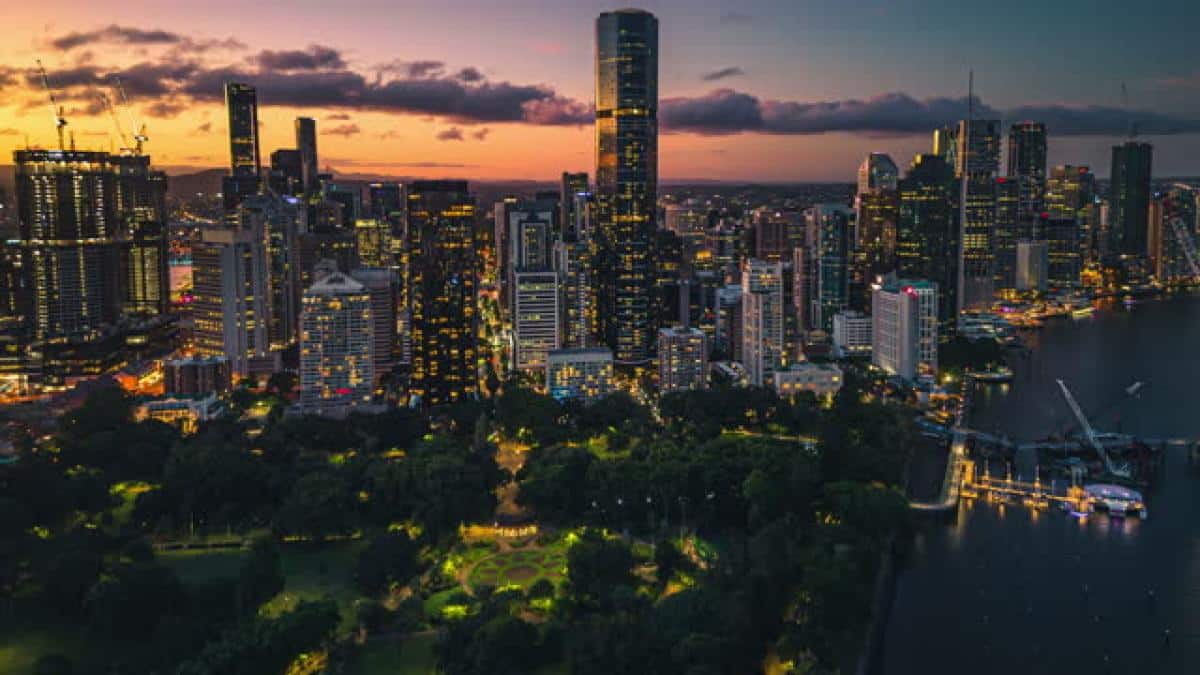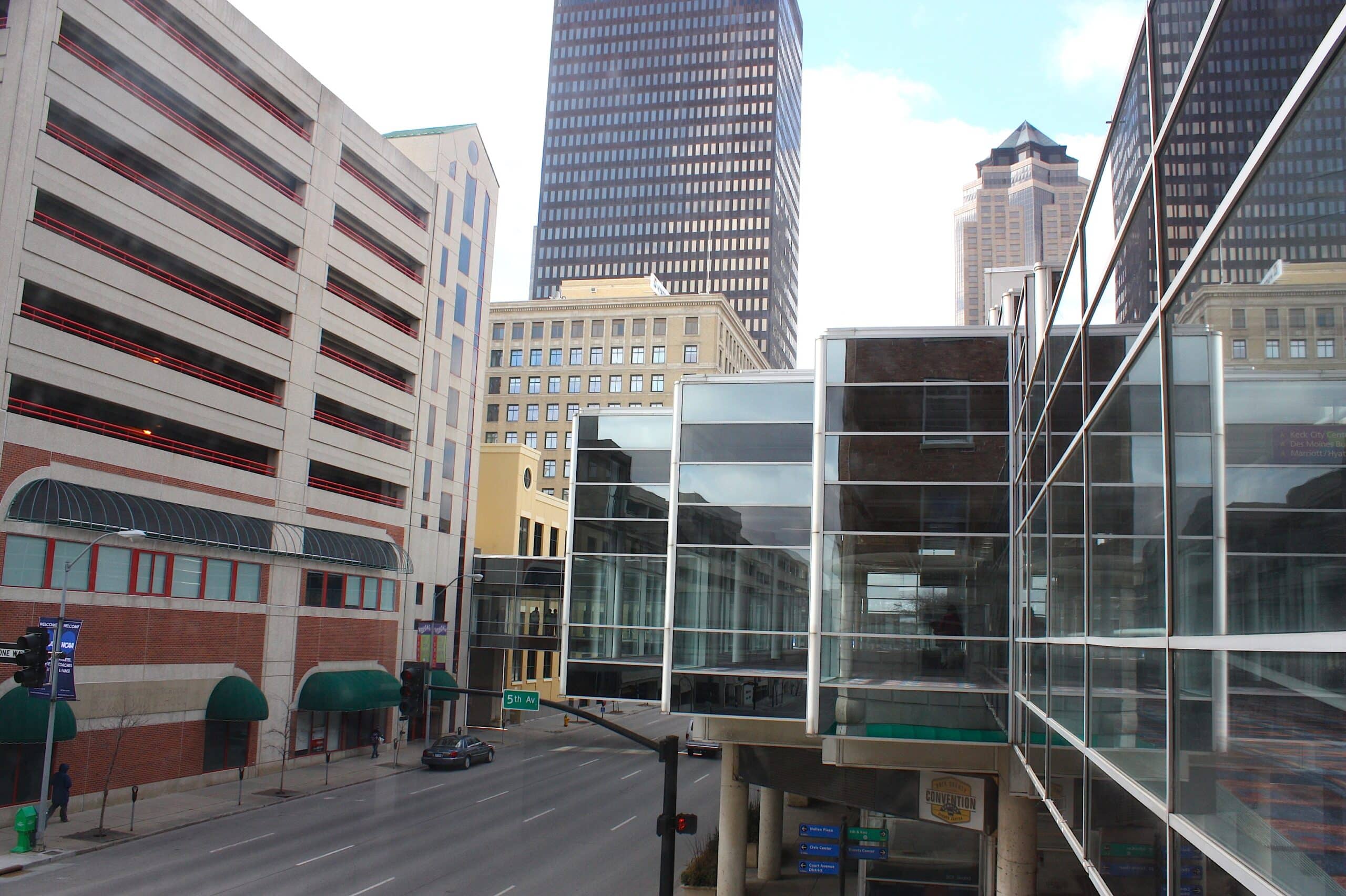Downtown Des Moines has developed a unique feature that quietly enhances both everyday life and real estate value: a connected network of skywalks and limited underground tunnels. These pathways offer residents, workers, and visitors the ability to move between buildings without having to brave extreme weather conditions—an important factor in a city with hot summers and cold, snowy winters.
What might seem like a simple convenience actually carries significant implications for real estate developers, investors, and homebuyers. Properties that are part of, or adjacent to, this system often enjoy higher occupancy rates, improved tenant satisfaction, and greater long-term appeal. For those looking to invest in Des Moines real estate, understanding the practical value of this infrastructure is essential.
The Skywalk System: A Selling Point in All Seasons
The Des Moines skywalk system spans over four miles and connects dozens of downtown buildings across more than 30 blocks. This climate-controlled infrastructure is accessible most hours of the day and is actively used by thousands of people to commute, shop, and socialize indoors, regardless of weather conditions.
From a real estate perspective, buildings with direct access to the skywalk system have a clear advantage. Office spaces remain accessible during snowstorms, and apartments or condos that connect to the network offer a level of convenience that appeals strongly to urban residents. This feature is not just a lifestyle perk—it also contributes to walkability scores and boosts long-term leasing value for both residential and commercial spaces.
Properties with direct skywalk access often command higher demand due to the added convenience. For instance, in February 2025, the median listing home price in Downtown Des Moines was $339,500, with a median price per square foot of $268. This reflects a premium associated with properties offering such amenities.
Underground Tunnels: Limited Access, High Interest
While not as extensive as the skywalks, Des Moines also has several underground tunnels that connect portions of older downtown buildings. These are generally found beneath government offices, parking structures, and select commercial buildings, offering discreet yet practical internal movement between properties.
For real estate developers, these tunnels present opportunities for creative use, including underground storage, private access routes, or potential renovation into usable space. For tenants and owners, having secure, weatherproof connectivity between buildings can enhance safety, accessibility, and all-season usability—particularly for seniors or individuals with mobility concerns.
A Quiet Amenity with Big Value
Unlike obvious selling points like gyms or rooftop lounges, the skywalk and tunnel system serves as a hidden but highly functional amenity. It improves the quality of life for a wide range of people – from young professionals commuting to work to families with small children navigating downtown with ease.
While the system promotes safety, falls or injuries in high-traffic areas can still happen. If you’ve experienced such an incident, consult an experienced Iowa personal injury attorney to protect your interests.
This infrastructure also contributes to the long-term retention of tenants by enhancing daily convenience. Residents and workers alike benefit from reduced exposure to inclement weather, and businesses appreciate the consistent foot traffic that doesn’t fluctuate with the seasons. The quiet efficiency of the system reinforces its importance in the broader conversation about what makes downtown living sustainable and attractive.
Boosting Property Appeal with Connected Infrastructure

Properties linked to the skywalk or underground system enjoy a notable increase in appeal due to their year-round usability. This infrastructure allows for easy access to workplaces, retail centers, and entertainment venues without the need to venture outdoors, which is especially attractive in cities with seasonal extremes like Des Moines.
Buildings within or near the system tend to see greater foot traffic, which benefits ground-floor commercial units and mixed-use developments. For residential units, tenants appreciate the convenience of indoor navigation, which can be a deciding factor in lease renewals and sales. The value added by this infrastructure is often understated, but highly significant in the competitive urban housing market.
Real Estate Opportunities: Who Should Be Paying Attention
Investors looking for multi-use buildings in downtown Des Moines should strongly consider properties connected to or within close proximity of the skywalk or tunnel system. The combination of high utility, steady demand, and broad demographic appeal makes these properties strong long-term assets.
Developers interested in renovating older buildings may find added value in exploring tunnel-linked locations. There is untapped potential in repositioning these spaces to support a growing demand for connected, flexible living and working environments. Buyers and renters alike are increasingly looking for properties that balance walkability with weather protection – and Des Moines offers that balance in a uniquely practical form.
For example, in the third quarter of 2024, Des Moines experienced a 1.9% year-over-year increase in average effective rents for new leases, reaching $1,140 per month. This growth surpasses the national average rental increase of 1.0%, indicating a robust demand for well-located properties.
What the Future Holds
While the skywalk system has steadily expanded over the years, further integration with new developments could increase its importance in the coming decades. As urban planning trends continue to favor pedestrian-first infrastructure, connected buildings will be more in demand, not less.
Forward-looking developers and investors can gain an edge by identifying properties that will benefit most from future expansions or enhancements to this system. In a city that values both efficiency and accessibility, connected infrastructure will continue to influence real estate decisions well into the future.
Conclusion
Des Moines’ network of skywalks and underground tunnels is more than just a practical way to avoid bad weather—it’s a key contributor to downtown property value. For real estate professionals, this infrastructure represents a strategic advantage that directly impacts usability, desirability, and long-term investment potential.
In a market where convenience, comfort, and connectivity are top priorities, properties that plug into Des Moines’ unique system are increasingly worth a closer look. Whether you’re buying, developing, or investing, understanding how infrastructure shapes urban living is essential – and Des Moines has already laid the groundwork.

